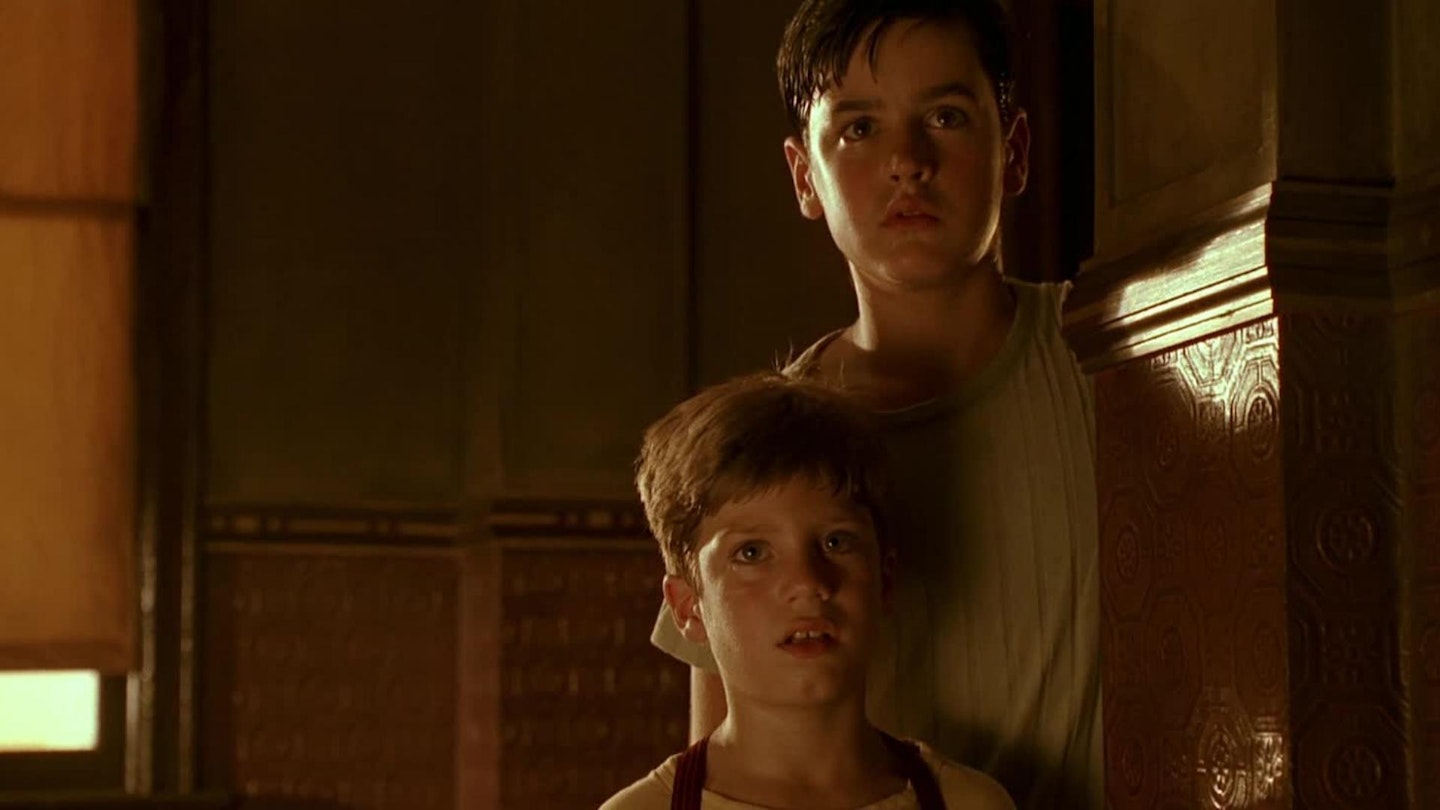After the career misstep of Kafka, his grimly problematic follow-up to sex lies and videotape, writer-director Steven Soderbergh's third feature is a triumphant return to form, an exquisitely crafted and richly detailed adaptation of A.E. Hotchner's memoirs about growing up in St. Louis during the depths of the Depression, chronicling the coming-of-age of Aaron Kurlander (Bradford), a quick-witted, resourceful and imaginative 12-year-old plunged into a progressively dark odyssey of survival.
The Kurlander clan live in the Empire hotel, where everything people, situations and emotions is ephemeral and transitory. Aaron's kid brother Sullivan is shipped off to live with relatives, warmhearted but sickly Mrs. Kurlander (Eichhorn) is sequestered away in a sanatorium, and luckless father (Krabbe) dumps his ill-fated wickless candle scheme to sell watches door-to-door in another state, leaving Aaron to fend for himself in a series of beautifully rendered episodes which bring him face-to-face with all the humour and tragedy of life.
The period trappings are faultless, the acting superb, with the batty down-and-outs inhabiting the Empire including Spalding Gray as a former moneybags turned boozer and Elizabeth McGovern as his hard-hearted prostitute companion especially memorable. It is Bradford, however, who stands out. Whether giving lyrical speeches about Charles Lindbergh to his classmates or weaving fantastical tales to conceal his impoverished circumstances, he gives one of the best and most natural performances by a young actor in recent memory, while Soderbergh, shows himself to be a truly remarkable filmmaker, filling every frame, no matter how nightmarish Aaron's predicament, with rapt wonder.
